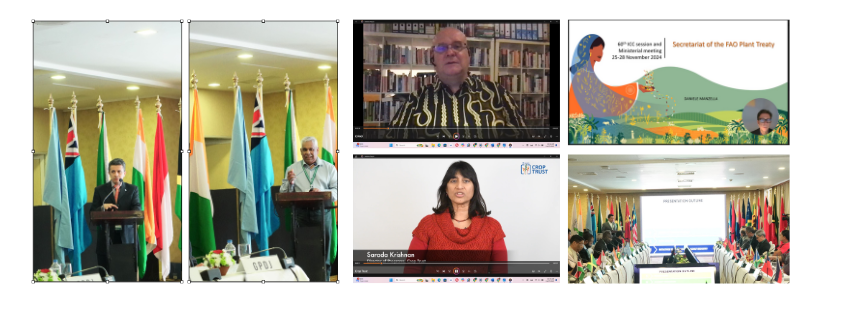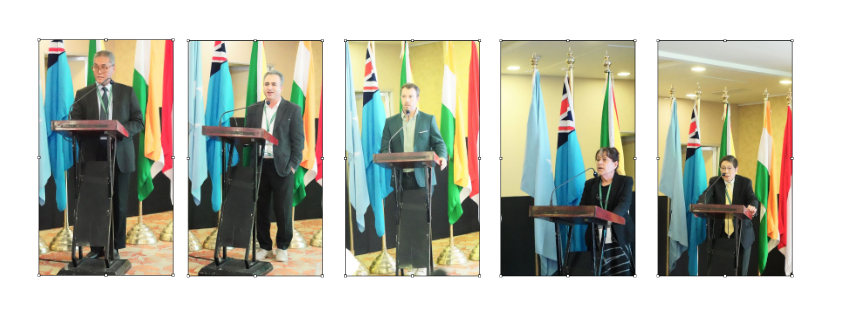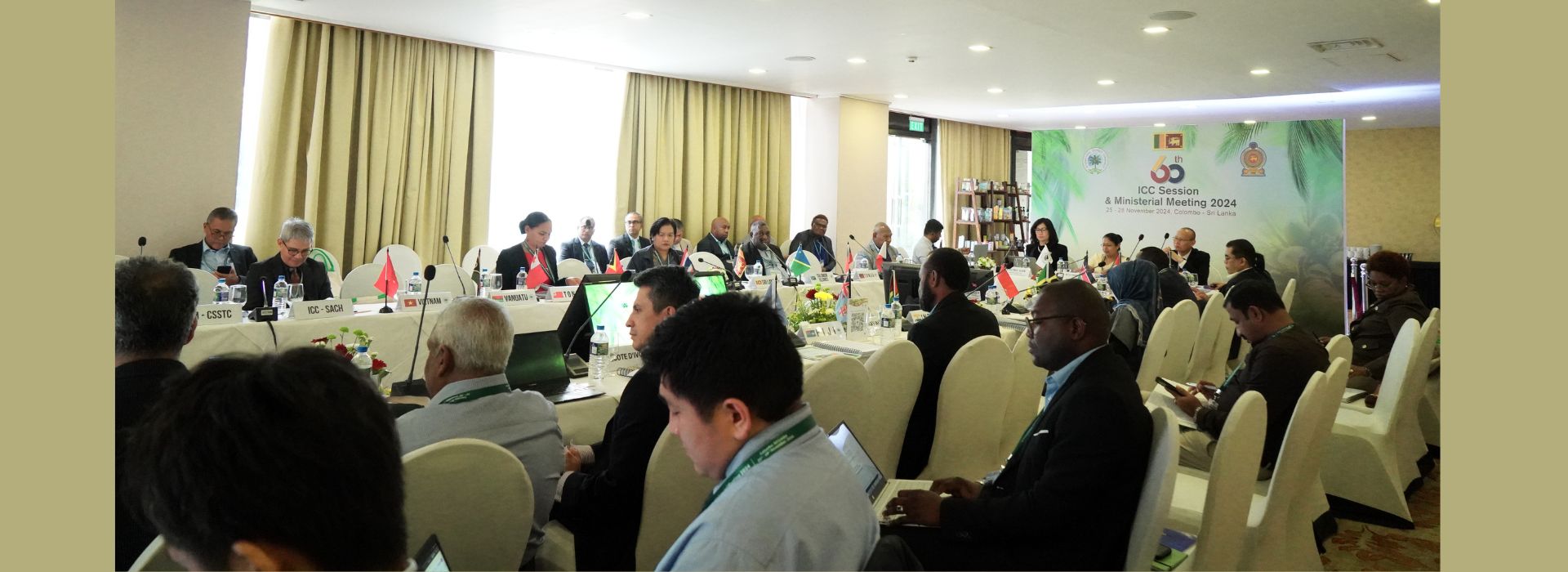The second day of the International Coconut Community's (ICC) 60th Session and Ministerial Meeting provided a comprehensive exploration of sustainable coconut sector development. Following presentations from Malaysia, Solomon Islands, Sri Lanka, Thailand, and Tonga outlining their national agendas, a diverse group of international organizations and partners shared their expertise and initiative.


Mr. Ambassador Diar Nurbiantoro, representing NAM CSSTC, championed South-South cooperation, emphasizing the importance of knowledge sharing, skills development, and sustainable practices to empower communities and drive progress in coconut-producing countries.
Mr. Reynaldo V. Ebora from DOST-PCAARRD in the Philippines showcased their extensive research and development programs, highlighting a collaborative approach that brings together government agencies, universities, and the private sector to address key challenges in the coconut industry.
Dr. Vinod Pandit from CABI underscored their commitment to providing technical expertise and capacity-building programs to tackle pests and diseases, emphasizing the importance of knowledge sharing and digital tools to support sustainable coconut production.
Mr. Gregory Bardies from SCP advocated for collaborative action to address sustainability challenges, highlighting their work in developing a common language for sustainability criteria and creating a new assurance system to encourage wider adoption of sustainable practices.
Dr. Sarada Krishnan from Crop Trust, in a video presentation, stressed the critical role of coconut genetic diversity in building resilience to climate change and other threats, calling for collaborative efforts to conserve these valuable resources.
Dr. Jean-Marc Roda from CIRAD, also through a video presentation, presented their research and innovation programs focused on genetic diversity, sustainable farming practices, and value chain development, emphasizing the need for revitalizing plantations and embracing digital innovation.
Dr. Carmel A. Pilotti from SPC detailed their efforts to conserve coconut genetic resources in the Pacific region, address biotic threats, and build capacity through training programs, highlighting the importance of regional collaboration and market access for smallholder farmers.
Mr. Masato Fujii from GPDJ showcased their innovative technology for producing sustainable aviation fuel from non-standard coconuts, demonstrating the potential of the coconut industry to contribute to a greener aviation sector.
Dr. Jairo Villamil-Diaz from UNIDO presented a compelling economic case for investing in Sri Lanka's coconut industry, emphasizing the potential for significant returns through increased primary production, value addition, and improved market access.
Dr. Daniel Manzella from ITPGRFA, in a video presentation, highlighted the importance of international collaboration and the role of the Plant Treaty in promoting the conservation and sustainable use of coconut genetic resources.
Mr. Dilip Tambyrajah from INFO advocated for a holistic approach to coconut development that considers the entire value chain, promotes responsible business practices, and addresses the social and economic needs of all stakeholders.
Engaging Discussions and FAQs
The presentations sparked lively discussions among delegates and participants, leading to a dedicated FAQ session that addressed key questions and concerns. Some of the frequently asked questions focused on:
- Access to Funding and Resources: Delegates inquired about funding opportunities and resources available to support research, development, and capacity-building initiatives in their respective countries.
- Technology Transfer and Adoption: Participants sought information on best practices for technology transfer and adoption, emphasizing the need for practical solutions that can be readily implemented by farmers and processors.
- Market Access and Value Addition: Questions were raised about strategies for improving market access, particularly for value-added coconut products, and the role of branding and certification in enhancing competitiveness.

